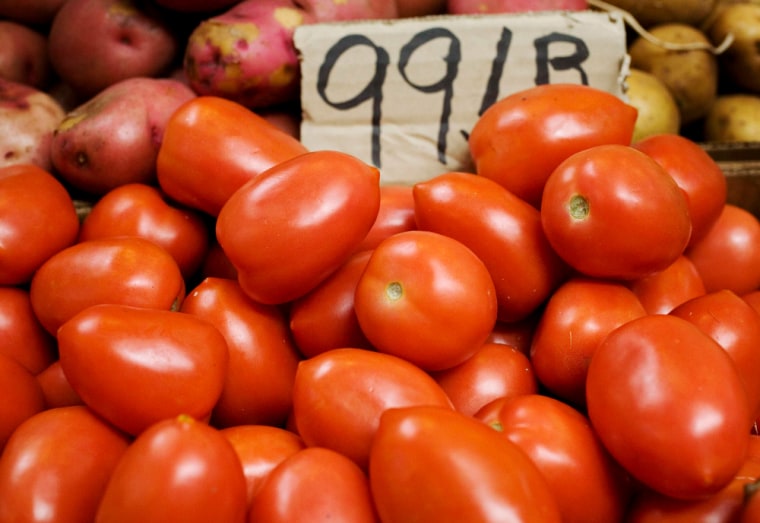If you consider eating tomatoes a delicious way to prevent cancer, a recent study may have been a shock.
Lycopene, a compound found in tomatoes, is widely touted as a protector against cancer, particularly prostate cancer. The study found that higher blood levels of lycopene were not linked with reduced risk of prostate cancer.
This may have you wondering whether your efforts to eat tomatoes are a waste. Although this study raises several interesting research questions, it’s important to remember that we should never change our eating habits based on just one or two studies. The best dietary advice continues to be to aim for a wide variety of fruits and vegetables, tomatoes included, in all our meals.
In laboratory studies, lycopene stands out as a potent weapon against cancer. As one of the carotenoid phytochemicals (related to beta-carotene), lycopene seems to protect our cells’ DNA with its strong antioxidant power and its ability to stimulate enzymes that deactivate carcinogens before they can get cancer started.
Lycopene is found in several reddish fruits and vegetables, including red and pink grapefruit, guava and watermelon. But tomatoes provide by far the majority of most Americans’ lycopene intake, and studies evaluating lycopene consumption almost always mean tomato consumption.
In research focusing on lycopene and tomato consumption in humans, studies have repeatedly found an association between greater consumption and lower prostate cancer risk. In an analysis of 21 studies, men who ate the greatest amounts of raw tomatoes showed an 11 percent decrease in risk for prostate cancer. Those who ate the most cooked tomatoes showed a 19 percent reduction in prostate cancer risk. (Our bodies absorb lycopene more readily from cooked tomatoes.) Several smaller studies also show that eating tomatoes slows development of existing prostate cancer.
New questions
Then in 2006, the Prostate, Lung, Colon, Ovarian Cancer Screening Study (PLCO) raised questions. Almost 30,000 men identified how often they ate more than 25 different tomato-based foods. After eight years, neither the top 20 percent of lycopene or tomato consumers showed any reduced risk of developing prostate cancer.
Because absorption of lycopene improves dramatically when it comes from cooked tomatoes, researchers wondered whether looking directly at blood levels of lycopene would show a relationship to prostate cancer risk. But in a follow-up study reported in May, no significant link was seen between lycopene blood levels and reduced cancer risk.
The men in the PLCO studies were unusual in at least one respect; they averaged eight to nine servings of vegetables and fruits a day.
According to a 2007 report by the Centers for Disease Control and Prevention, only 22 percent of men eat the recommended three or more servings of vegetables per day, and 29 percent of men eat the recommended two or more servings of fruit.
Is it possible that when our total vegetable and fruit consumption reaches recommended levels, the impact of any one phytochemical or food becomes less important or less obvious? Not only do studies suggest multiple benefits from eating tomatoes themselves rather than lycopene supplements alone, research also suggests a synergy between tomatoes and other vegetables, such as broccoli.
The PLCO studies add important information as scientists work to understand and defeat cancer. Meanwhile, including tomatoes in our meals makes sense, for their delicious flavor and their many nutrients and phytochemicals. However, neither lycopene — nor any other single food or phytochemical — is likely to protect us as well as an overall healthy diet.
